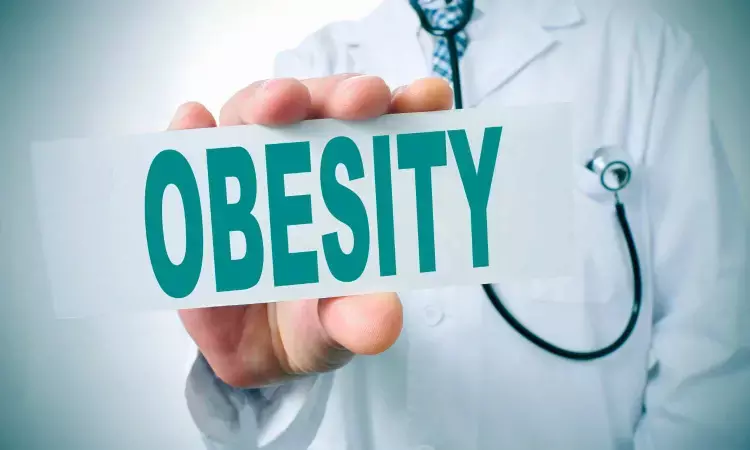- Home
- Medical news & Guidelines
- Anesthesiology
- Cardiology and CTVS
- Critical Care
- Dentistry
- Dermatology
- Diabetes and Endocrinology
- ENT
- Gastroenterology
- Medicine
- Nephrology
- Neurology
- Obstretics-Gynaecology
- Oncology
- Ophthalmology
- Orthopaedics
- Pediatrics-Neonatology
- Psychiatry
- Pulmonology
- Radiology
- Surgery
- Urology
- Laboratory Medicine
- Diet
- Nursing
- Paramedical
- Physiotherapy
- Health news
- Fact Check
- Bone Health Fact Check
- Brain Health Fact Check
- Cancer Related Fact Check
- Child Care Fact Check
- Dental and oral health fact check
- Diabetes and metabolic health fact check
- Diet and Nutrition Fact Check
- Eye and ENT Care Fact Check
- Fitness fact check
- Gut health fact check
- Heart health fact check
- Kidney health fact check
- Medical education fact check
- Men's health fact check
- Respiratory fact check
- Skin and hair care fact check
- Vaccine and Immunization fact check
- Women's health fact check
- AYUSH
- State News
- Andaman and Nicobar Islands
- Andhra Pradesh
- Arunachal Pradesh
- Assam
- Bihar
- Chandigarh
- Chattisgarh
- Dadra and Nagar Haveli
- Daman and Diu
- Delhi
- Goa
- Gujarat
- Haryana
- Himachal Pradesh
- Jammu & Kashmir
- Jharkhand
- Karnataka
- Kerala
- Ladakh
- Lakshadweep
- Madhya Pradesh
- Maharashtra
- Manipur
- Meghalaya
- Mizoram
- Nagaland
- Odisha
- Puducherry
- Punjab
- Rajasthan
- Sikkim
- Tamil Nadu
- Telangana
- Tripura
- Uttar Pradesh
- Uttrakhand
- West Bengal
- Medical Education
- Industry
Elevated baseline blood sugar determines burn-related mortality in obese patients

USA: A recent study published in Burns: Journal of the International Society for Burn Injuries has emphasised the differentiation between metabolically unhealthy versus healthy obesity. Elevated baseline glucose levels indicate increased mortality in obese people with burn injuries.
Differing outcomes in burn patients with obesity have sparked interest in understanding the underlying factors contributing to their prognosis. The study using Cerner Health Facts Database has shed light on the importance of metabolic health in this population. The findings indicate that distinguishing between metabolically healthy and unhealthy obesity may be key to unravelling the complex relationship between obesity and mortality in burn patients.
Researchers Holly Grossman and team conducted a retrospective analysis using deidentified patient data from 2014 to 2018. The study included 4,682 adult burn patients with second or third-degree burn injuries. The study aimed to determine if the association between increased body mass index (BMI) and mortality is influenced by baseline glucose levels, which serve as a surrogate marker for metabolically unhealthy obesity. Initially, BMI alone did not show a significant association with higher mortality.
● The study involving 4,682 adult burn patients has provided new insights into the relationship between obesity, glucose levels, and mortality in this population. Contrary to expectations, the study found that BMI alone did not contribute to higher patient mortality rates (β = 0.106, p = 0.331).
● However, further analysis revealed an interesting finding: the impact of BMI on burn-related mortality was influenced by baseline glucose levels. Specifically, individuals with higher BMI and elevated baseline blood glucose levels had a significantly higher risk of mortality than those with lower baseline blood glucose levels (β = 0.277, p = 0.009).
● These findings were consistent even after adjusting for additional factors (β = 0.285, p = 0.025) and in sensitivity analysis, indicating their robustness and validity.
● The study highlights the importance of considering baseline glucose levels as a moderator in understanding the relationship between BMI and mortality in burn patients.
These results underscore the significance of metabolic health in influencing outcomes for obese burn patients. Elevated baseline glucose levels serve as a crucial indicator of increased mortality risk. By taking into account BMI and baseline glucose levels, healthcare professionals can gain a more comprehensive understanding of the metabolic profiles of burn patients, enabling them to make more informed treatment decisions.
The recent study highlights the importance of considering metabolic health when assessing the impact of obesity on mortality in burn patients. The findings suggest that baseline glucose levels are a key moderator in this association. By recognizing the distinction between metabolically healthy and unhealthy obesity, healthcare providers can better identify high-risk patients and implement appropriate interventions. This study opens the door to further investigation into the underlying mechanisms and potential strategies for improving outcomes in this specific patient population.
Reference:
Grossman, H., Cole, T. J., Shaw, C., Dissanaike, S., & Dhanasekara, C. S. (2023). Do baseline glucose levels moderate the association between burn-related mortality of patients with obesity? Burns: Journal of the International Society for Burn Injuries. https://doi.org/10.1016/j.burns.2023.05.013
Dr Kamal Kant Kohli-MBBS, DTCD- a chest specialist with more than 30 years of practice and a flair for writing clinical articles, Dr Kamal Kant Kohli joined Medical Dialogues as a Chief Editor of Medical News. Besides writing articles, as an editor, he proofreads and verifies all the medical content published on Medical Dialogues including those coming from journals, studies,medical conferences,guidelines etc. Email: drkohli@medicaldialogues.in. Contact no. 011-43720751


